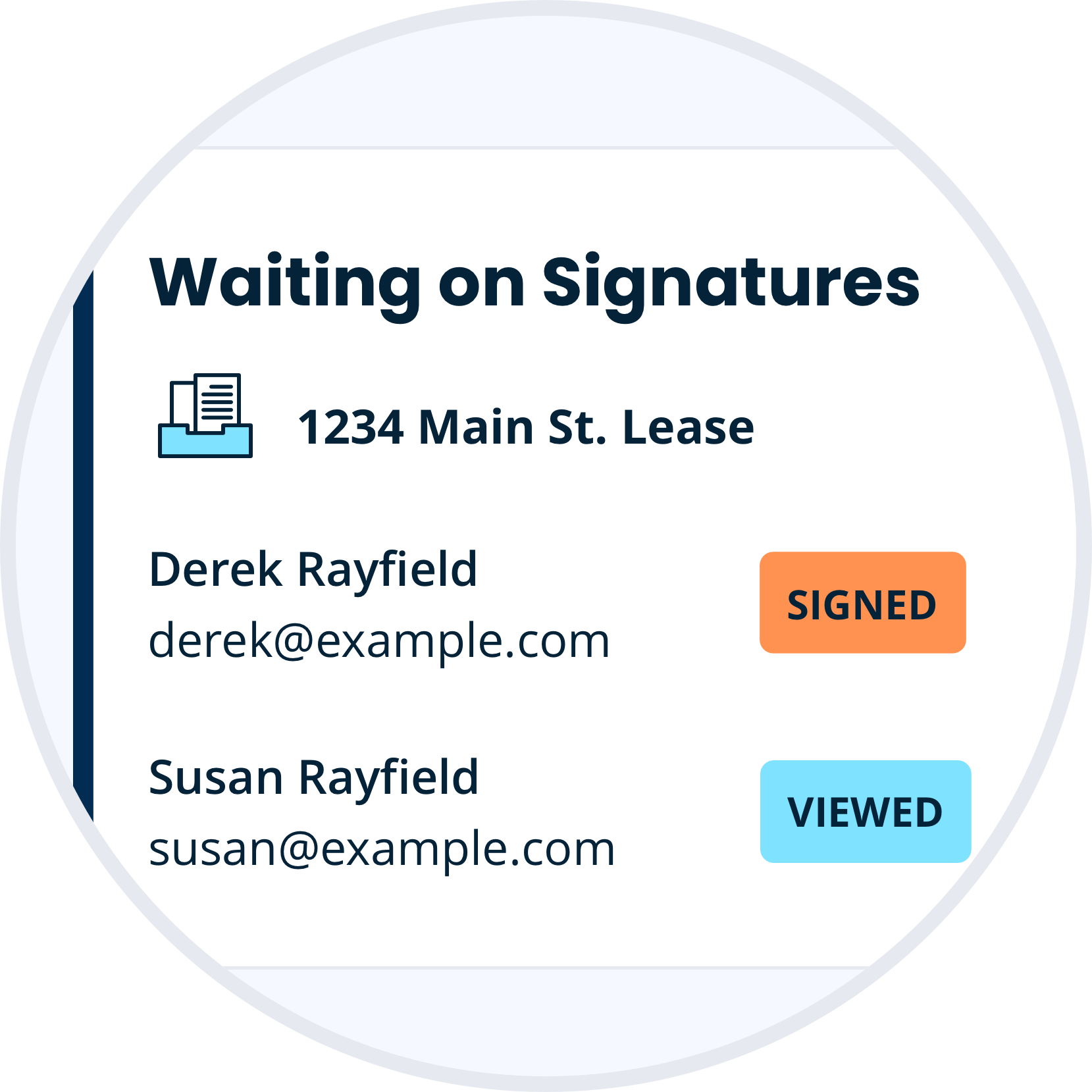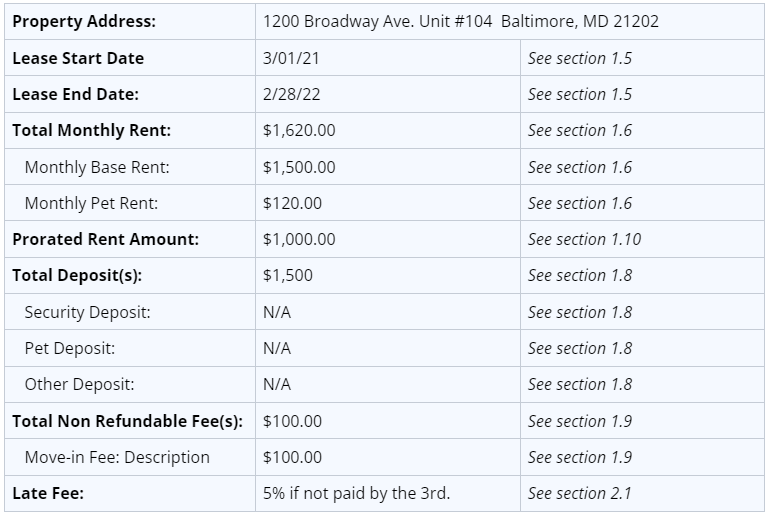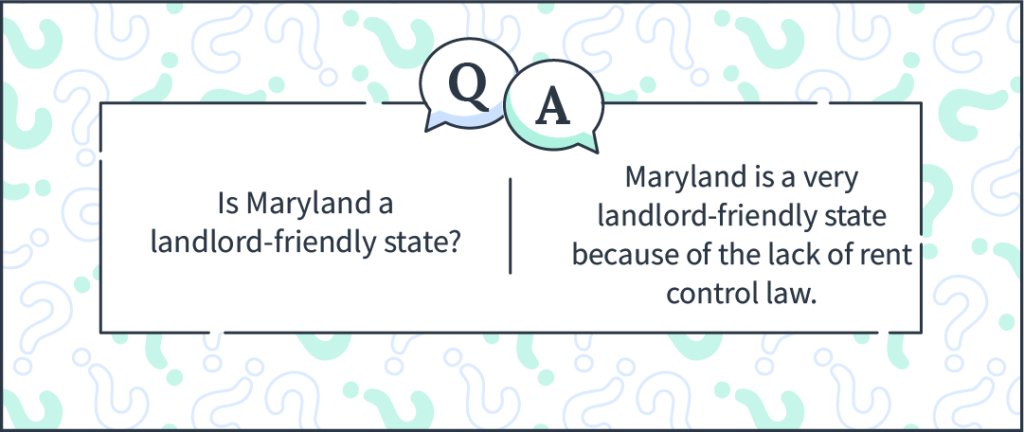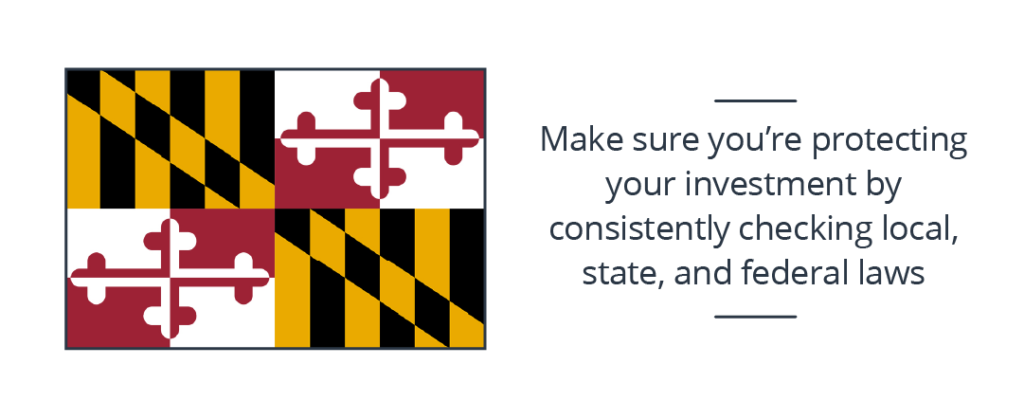Table of Contents
- Maryland Renters’ Rights and Landlord Responsibilities
- Maryland Landlords’ Rights and Tenant Responsibilities
- Maryland (State) Lease Agreements
- Montgomery County (Washington D.C.) Lease Agreements
- Baltimore Lease Agreements
- Maryland Lease Agreement Sample
- Maryland Landlord-Tenant Law FAQ
- Due Diligence and Maryland Rental Laws
- Maryland Landlord-Tenant Law Resources
In recent years, Maryland had the highest gross rental yields, which makes it a great state for landlords to invest in new rental properties. Maryland also has high foreclosure rates, which makes it easier for property investors to pick up nice properties for cheap. There are three different sets of requirements for Maryland landlords based on where their rentals are located, divided into Baltimore, Montgomery County, and the State of Maryland.
Laws that impact the rental market, landlords, and tenants are constantly being decided in states. Make sure you know what’s on your ballot – find Maryland voting information provided by Maryland’s State Board of Elections.

Maryland Renters’ Rights and Landlord Responsibilities
- Have 45 days to return security deposit
- No notice required before raising rent
- No notice required before entering the property
- Required to make repairs within 30 days
When it comes to Maryland rental laws, there are a few specifics landlords need to know:
- Security Deposit – Maryland limits the amount a landlord may charge for the security deposit to the equivalent of two months’ rent. Landlords must return the deposit within 45 days of the tenant moving out.
- Raising Rent – Landlords in Maryland may increase the rent to any amount for any reason with no notice.
- Notice of Entry – Maryland does not require notice from the landlord before entering.
- Repairs – It is the landlord’s responsibility to keep the rental in safe and healthy living conditions. Landlords must make repairs within 30 days after being notified by the tenant. If the landlord fails to make these repairs, the tenant may pay for the repairs and deduct the cost from their next rent payment.
- Rental Applications (Montgomery County only) – Landlords are prohibited from asking certain inquiries regarding criminal histories in rental housing applications.
Maryland Landlords’ Rights and Tenant Responsibilities
- Required to issue a 14-day notice before filing for eviction
- Must give a three-month notice before terminating a lease
- Tenants must keep the unit in safe and habitable condition
- Overdue Rent – If a tenant fails to pay rent on time, the landlord must issue a notice that gives the tenant 14 days to pay. If the tenant still doesn’t pay, the landlord may file for eviction.
- Terminating a Lease – If a tenant needs to terminate a year-to-year lease, they must give the landlord a three-month notice.
- Tenant Responsibilities – Tenants are required to keep the property clean and not disturb neighbors.
Maryland (State) Lease Agreements
Rental Application Fees
The State of Maryland limits application fees to $25. Any amount over the actual cost of a credit check must be refunded.
Required Lease Disclosures
- Notice of rights regarding inspection before and after tenancy
- Notice of Habitability with all defects disclosed alongside who will be responsible for fixing (landlord or tenant)
Montgomery County (Washington D.C.) Lease Agreements
Criminal Background Checks
Landlords can only conduct criminal background checks after a conditional offer to rent has been made.
Security Deposits
In Montgomery County, security deposits must be placed in an interest-earning account.
Additional Requirements
- Montgomery County Landlord-Tenant Handbook must be presented to tenants with each party signing it.
- A tenant’s initial lease term must be at least two years in duration. If less than two years, a reasonable explanation must be given (i.e., you are planning on selling the property in a year).
Late Fees
Rent is due in full on the first day of each month. If rent isn’t received on or before the 10th day of the month, you may charge your tenant a late fee of 5% of the unpaid rent amount.
Non-Refundable Fees
Montgomery County does not allow non-refundable fees to be charged to tenants, such as pet fees or deposits, move-in fees, cleaning fees, etc., unless such fees are part of certain condominium community bylaws.
There is a 90-day notice requirement for any rent increases or lease renewals. 60-days notice is required for any non-renewal of the lease.
Trash
Montgomery County law requires landlords to pay for trash removal and provide receptacles for multi-family properties. For single-family properties, you must pay for trash removal, but you don’t have to provide the bins. If your property is not located in a county trash collection district, your tenant can pay for trash collection if provided by a private trash hauler.
Lease Disclosures
- For any property constructed before 1978 and not individually metered, all shared gas and electric utilities must be disclosed along with the formula used to divide the cost.
- Window Guard Disclosure
- Install window guards in all multi-family units on all operable windows if there’s a child under age 11 present or upon request.
- Smoke Alarms
- Check and replace all 10+ year old smoke detectors with lithium-ion-sealed 10-year batteries.
Baltimore Lease Agreements
Security Deposits
All security deposits must be placed in an interest-earning account.
You must notify your tenants of their rights of inspection before and after lease termination.
Smoke Alarms
Check and replace all 10+ year old smoke detectors with lithium-ion-sealed 10-year batteries.
Required Lease Disclosures
- Shared Utilities
- If any water/wastewater utility costs are shared by tenants for the property, the specific formula used to calculate the tenant’s share of the expense and the average monthly allocated costs of water and wastewater services in the preceding 12 months must be included.
- Flood Zone
- If the landlord knows, or if the city or some other governmental agency has notified the landlord of the fact that the premises, storage, or parking area is located within a floodplain, then the landlord must disclose this.
Floodplain is defined as a flat or low-lying land area adjacent to a river or stream that is subject to partial or complete inundation, an area subject to unusual and rapid accumulation of runoff of surface waters from any source, or an area subject to tidal surge or extreme tides.
If the property is in a flood zone, you must present this statement:
“The rental unit you are to occupy or the motor vehicle parking area or separate storage facility you are to use (as the case may be) is situated in an area prone to flooding during unusually heavy or prolonged steady periods of rain. Such flooding may damage personal belongings and motor vehicles. Because of this possible loss, you may be eligible for U.S. Government subsidized flood insurance on the personal belongings in your unit. In any event, because of this danger of loss of your personal belongings due to flooding, you may wish to consider acquiring flood insurance which may be purchased from some insurance agents.
Damage to motor vehicles may not be covered by such insurance; therefore you may also wish to determine whether or not you have sufficient motor vehicle insurance to cover loss due to damage of your motor vehicle resulting from flooding in this area.
The Baltimore City Department of Planning can provide information pertaining to the susceptibility of this area to flooding. You may wish to contact that Department before signing this acknowledgment contained within the lease agreement for this rental unit.”
Build a Maryland lease agreement in less than 15 minutes.
Maryland Lease Agreement Sample
There are three sections to a residential lease agreement. The first section outlines the custom details of the contract, such as who’s involved and for what address. Here’s an example Maryland lease agreement listing details found in Section 1:
Maryland Landlord-Tenant Law FAQ
Below are answers to some of the most commonly-asked questions when it comes to landlord-tenant laws in Maryland:
Can You Withhold Rent in Maryland?
If a landlord fails to make necessary repairs, the tenant may pay for those repairs and deduct the price from their next rent payment.
How Long Does it Take to Evict a Tenant in Maryland?
Evicting a tenant in Maryland can take anywhere from three weeks to five months depending on the reason for eviction.
Is Maryland a Landlord-Friendly State?
Maryland is a very landlord-friendly state because of the lack of rent control law.
What is the Eviction Process in Maryland?
There are three reasons a landlord may file for eviction in Maryland. The three reasons include failing to pay rent, violation of the lease agreement, and the end of the lease term. Depending on the violation, the landlord may either file for eviction immediately or give them a notice to quit.
If the tenant fails to cure or quit, then the landlord may file a complaint with the court, which costs $15. After the complaint is filed, it will be served to the tenant within a few days.
The hearing will then be scheduled within 5 to 10 business days after the complaint was filed.
If the court rules in favor of the landlord, then a writ of restitution will be issued within a few hours to four days. Once received, the tenant will need to move out within 60 days.
How Much Notice Does a Landlord Have to Give a Tenant to Move Out in Maryland?
Landlords are required to give one month’s notice before asking a tenant to vacate the property.
Due Diligence and Maryland Rental Laws
TurboTenant has utilized many municipal sources, along with official state statutes, in order to compile this information to the best of our ability. However, local laws are always in flux, and landlords and tenants alike should do their due diligence and consult legal help when it’s needed. We hope the following list can serve as a valuable resource and allow you to succeed as a landlord or tenant in Maryland. Be sure to take proper precautions when it comes to finding the top candidates for your unit by utilizing our online rental application and tenant screening services.
Disclaimer: TurboTenant, Inc does not provide legal advice. This material has been prepared for informational purposes only. All users are advised to check all applicable local, state, and federal laws, and consult legal counsel should questions arise.

Unlimited Everything.
Create a single Maryland lease agreement, or subscribe and receive unlimited lease agreements, landlord forms pack, and e-signs for a simple annual fee. Be confident with all the legal forms and tools you need as a professional landlord.
Discover Our Unlimited PlanMaryland Landlord-Tenant Law Resources
Maryland Fair Housing Resources
- Fair Housing Resource Guide – Maryland Association of REALTORS®
- Tenant Rights, Laws and Protections: Maryland
- HUD in Maryland
Other State Resources
- Landlords and Tenants: Tips on Avoiding Disputes
- Landlords and Tenants – Maryland Attorney General (PDF Version)
- Tenant Rights for Students (PDF)
- Maryland Courts – Landlord/Tenant
- District Courts of Maryland – Information for Landlord
- 100 Best Things To Do In Maryland
Maryland Associations
Maryland City-Specific Housing Resources
Baltimore
- Rental and Housing Laws & Rules for Baltimore City – A Branch of the Maryland State Law Library
- Fair Housing & Equal Opportunity
- Greater Baltimore Board of REALTORS®
Frederick
Rockville
- Landlord-Tenant Affairs – City of Rockville
- Landlord-Tenant Handbook – Montgomery County
- Office of Landlord-Tenant Affairs (Landlord-Tenant) – Montgomery County
- Greater Capital Area Association of REALTORS®
Gaithersburg
- A Guide to Landlord-Tenant Relations in The City of Gaithersburg
- Landlord-Tenant Handbook – Montgomery County
- Office of Landlord-Tenant Affairs (Landlord-Tenant) – Montgomery County
- Impediments to Fair Housing Choice – City of Gaithersburg
- Greater Capital Area Association of REALTORS®
Bowie
- Rental Housing Program – City of Bowie
- Laws & Rules for Prince George’s County – A Branch of the Maryland State Law Library
- Fair Housing – City of Bowie
- Fair Housing Resources – City of Bowie
- Prince George’s County Association of REALTORS®
Hagerstown
- Rental Licensing – City of Hagerstown
- Washington County Tenant-Landlord Handbook
- Pen-Mar Regional Association of REALTORS®
Annapolis
- Laws & Rules for Anne Arundel County – A Branch of the Maryland State Law Library
- Customer Information Booklet for Rental Operating License and Property Maintenance – City of Annapolis
- Rental Operating License Application – City of Annapolis
- Fair Housing – City of Annapolis
- Anne Arundel County Association of Realtors®
College Park
- Laws & Rules for Prince George’s County – A Branch of the Maryland State Law Library
- Housing Regulations – City of College Park
- Off-Campus Housing – Landlord/Tenant Relations – University of Maryland
- Prince George’s County Association of REALTORS®
Salisbury
- Rental Property Information – City of Salisbury
- Off-Campus Living – Salisbury University
- Coastal Association of REALTORS®
Laurel
- Residential Rental Licenses – City of Laurel
- Laws & Rules for Prince George’s County – A Branch of the Maryland State Law Library
- Prince George’s County Association of REALTORS®
Takoma Park
- City of Takoma Park – Title 6 Housing
- City of Takoma Park – Title 6.16 Landlord-Tenant Relations
- Rental Housing – City of Takoma Park
- Landlord-Tenant Handbook – Montgomery County
- Office of Landlord-Tenant Affairs (Landlord-Tenant) – Montgomery County
- Greater Capital Area Association of REALTORS®
Federal Fair Housing Resources








